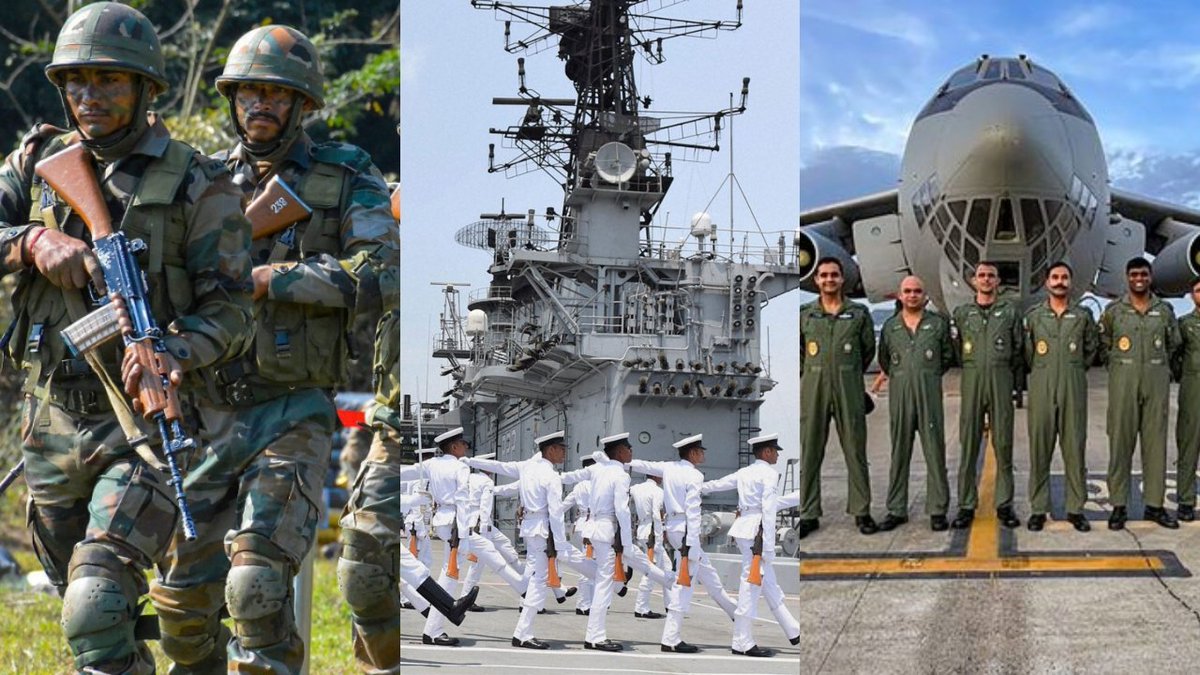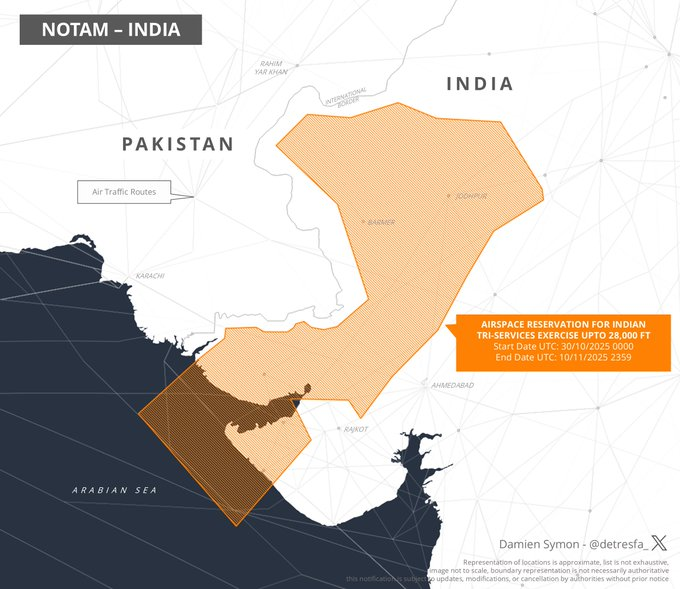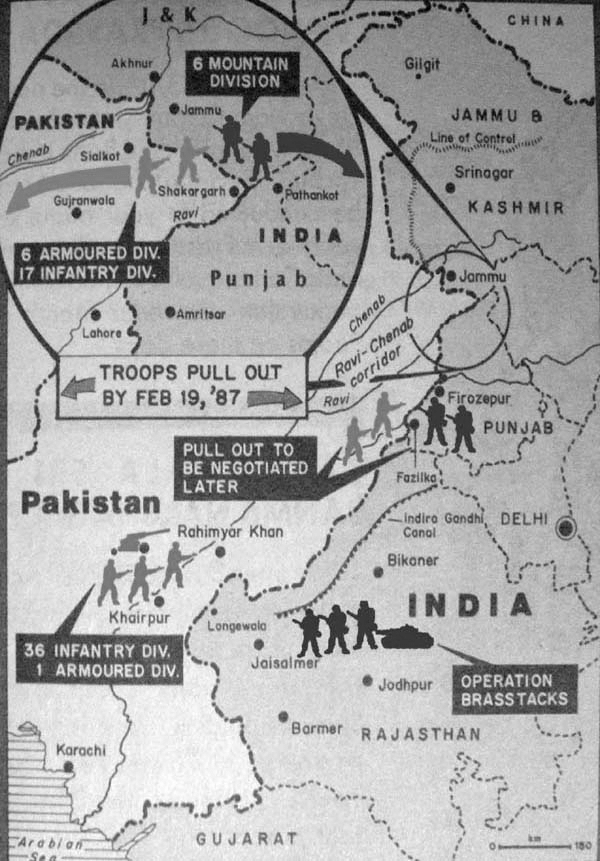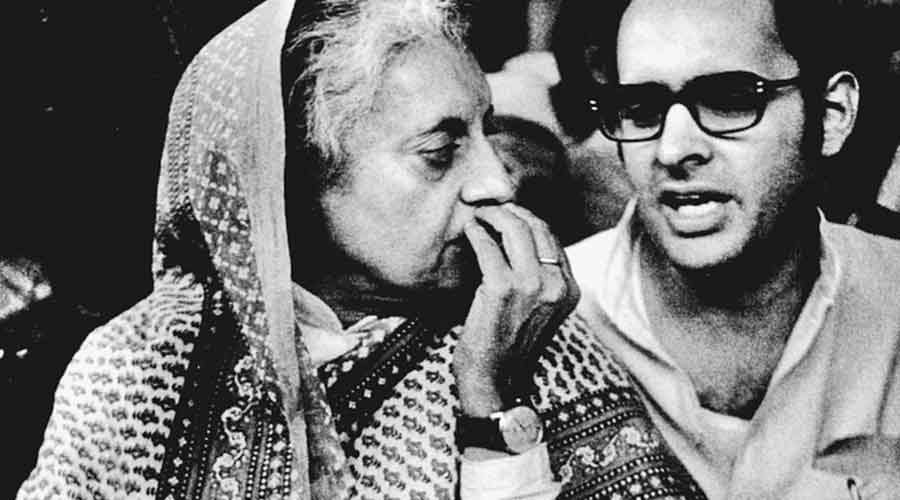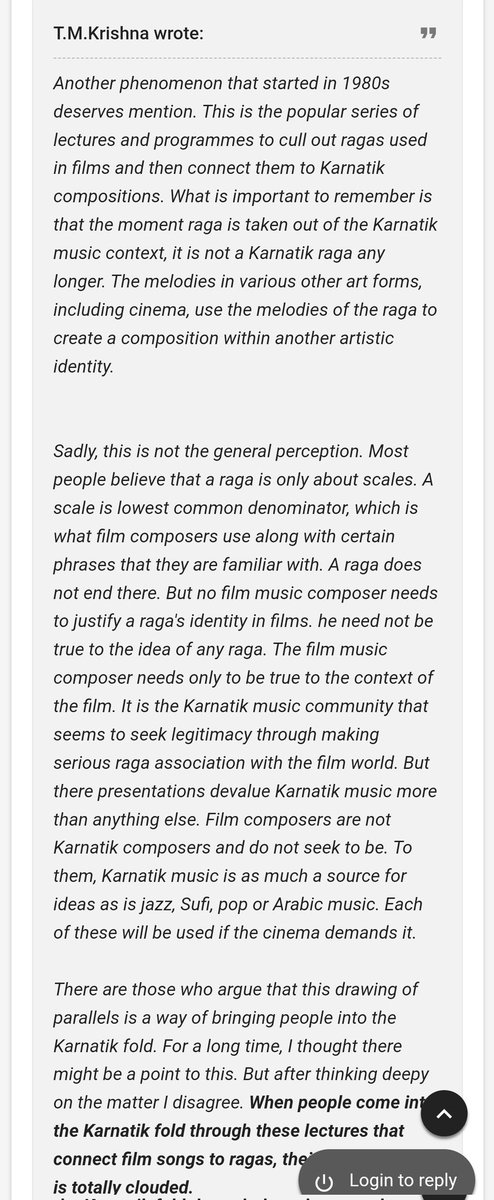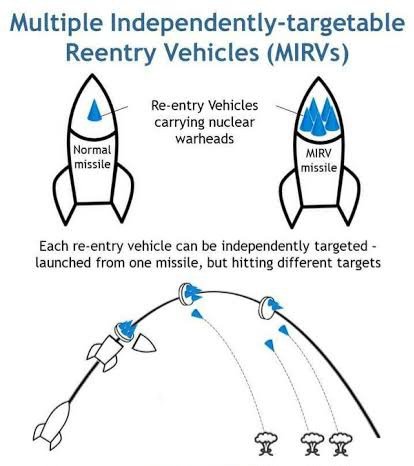THREAD 🧵
How a single poster in Kashmir unravelled a chilling terror plot spanning five states and prevented a mass-casualty nightmare.
Read this thread, which will sound like a season straight out of Homeland or Fauda!
How a single poster in Kashmir unravelled a chilling terror plot spanning five states and prevented a mass-casualty nightmare.
Read this thread, which will sound like a season straight out of Homeland or Fauda!

1/
It began with what most people walk past without a second glance:
A Pro-Jaish-e-Mohammed poster was pasted late at night on a wall in Srinagar.
For most, it’s graffiti.
For trained eyes, it’s an anomaly, a potential signal.
It began with what most people walk past without a second glance:
A Pro-Jaish-e-Mohammed poster was pasted late at night on a wall in Srinagar.
For most, it’s graffiti.
For trained eyes, it’s an anomaly, a potential signal.

2/
J&K Police didn’t shrug it off.
They inspected the paper quality, glue pattern, height of placement -> tiny clues that tell whether a poster is random, or part of covert signalling used by terror cells.
This one felt deliberate.
J&K Police didn’t shrug it off.
They inspected the paper quality, glue pattern, height of placement -> tiny clues that tell whether a poster is random, or part of covert signalling used by terror cells.
This one felt deliberate.
3/
Nearby CCTV caught a young man walking with too much confidence for someone doing something illegal.
No rush. No panic.
That calmness itself was suspicious.
Radicals often over-correct behaviour, appearing “normal” becomes the tell.
Nearby CCTV caught a young man walking with too much confidence for someone doing something illegal.
No rush. No panic.
That calmness itself was suspicious.
Radicals often over-correct behaviour, appearing “normal” becomes the tell.
4/
His trail led to Anantnag.
He wasn’t a dropout, a rebel, or an unemployed youth.
He was Dr Adeel Ahmad Rather, a qualified medical professional.
Someone trained to heal.
Someone with access, intelligence, and legitimacy.
His trail led to Anantnag.
He wasn’t a dropout, a rebel, or an unemployed youth.
He was Dr Adeel Ahmad Rather, a qualified medical professional.
Someone trained to heal.
Someone with access, intelligence, and legitimacy.

5/
This was the first chilling insight for investigators:
The network wasn’t using low-profile foot soldiers.
They were using white-collar, educated operatives who could move across cities and borders without suspicion.
This was the first chilling insight for investigators:
The network wasn’t using low-profile foot soldiers.
They were using white-collar, educated operatives who could move across cities and borders without suspicion.
6/
Interrogation didn’t start with screaming or threats.
It started with digital forensics:
Search history, deleted Telegram fragments, location metadata, and cache remnants.
Bits that survive even when the user thinks they’ve wiped everything.
Interrogation didn’t start with screaming or threats.
It started with digital forensics:
Search history, deleted Telegram fragments, location metadata, and cache remnants.
Bits that survive even when the user thinks they’ve wiped everything.
7/
Patterns emerged-> travel to Saharanpur, unusual gaps in his schedule, encrypted communication with numbers saved under bland labels like “Lab supplier”, “Uncle S”, “Rickshaw wala”.
The covers were intelligent.
Too intelligent.
Patterns emerged-> travel to Saharanpur, unusual gaps in his schedule, encrypted communication with numbers saved under bland labels like “Lab supplier”, “Uncle S”, “Rickshaw wala”.
The covers were intelligent.
Too intelligent.
8/
UP Police were alerted.
Adeel’s movement to Saharanpur was odd: no seminars, no family, no conferences.
Just a single night at a lodge, no ID submission, paid in cash.
That’s when agencies realised: logistics were being coordinated from NCR.
UP Police were alerted.
Adeel’s movement to Saharanpur was odd: no seminars, no family, no conferences.
Just a single night at a lodge, no ID submission, paid in cash.
That’s when agencies realised: logistics were being coordinated from NCR.
9/
Digital triangulation narrowed down repeated coordinates in Haryana, specifically the Dhauj area in Faridabad.
Nothing about the neighbourhood screamed “terror hub”.
Middle-class homes. Tuition centres. Garages.
Perfect camouflage.
Digital triangulation narrowed down repeated coordinates in Haryana, specifically the Dhauj area in Faridabad.
Nothing about the neighbourhood screamed “terror hub”.
Middle-class homes. Tuition centres. Garages.
Perfect camouflage.
10/
The raid was executed quietly.
No media leaks.
No noise.
Police moved at dawn, the “silent hour” when brain and body are slowest.
The raid was executed quietly.
No media leaks.
No noise.
Police moved at dawn, the “silent hour” when brain and body are slowest.
11/
Behind an ordinary-looking door lay something that doesn’t belong in normal civilian life:
~350 kg of ammonium nitrate
Timers
Pressure plates
Wires
A Krinkov-style rifle
A pistol
Magazines
Batteries
Metal fragments
Plastic drums
Tarpaulin sheets
Behind an ordinary-looking door lay something that doesn’t belong in normal civilian life:
~350 kg of ammonium nitrate
Timers
Pressure plates
Wires
A Krinkov-style rifle
A pistol
Magazines
Batteries
Metal fragments
Plastic drums
Tarpaulin sheets

12/
350 kg is not an amount used for a symbolic explosion.
It is a warfare quantity.
Enough to:
– Flatten buildings
– Tear through metro stations (Homeland S5!!!)
– Blow open airport perimeters
– Create mass-casualty shockwaves
Even a fraction of this could devastate Delhi.
350 kg is not an amount used for a symbolic explosion.
It is a warfare quantity.
Enough to:
– Flatten buildings
– Tear through metro stations (Homeland S5!!!)
– Blow open airport perimeters
– Create mass-casualty shockwaves
Even a fraction of this could devastate Delhi.

13/
But the most disturbing part wasn’t the explosives.
It was the people living there:
Two more highly educated individuals — both doctors, both attached to academic institutions like Al-Falah University.
Not militants.
Not gangsters.
Professionals.
But the most disturbing part wasn’t the explosives.
It was the people living there:
Two more highly educated individuals — both doctors, both attached to academic institutions like Al-Falah University.
Not militants.
Not gangsters.
Professionals.

14/
This explained how the cell stayed invisible.
Doctors don’t trigger suspicion.
They rent houses easily.
They can store chemicals without raising eyebrows.
Their travel looks legitimate.
Their bank activity blends with middle-class patterns.

This explained how the cell stayed invisible.
Doctors don’t trigger suspicion.
They rent houses easily.
They can store chemicals without raising eyebrows.
Their travel looks legitimate.
Their bank activity blends with middle-class patterns.


15/
Cross-state intel now revealed something more frightening:
The Faridabad cell wasn’t isolated.
It was part of a multi-layered network stretching from Kashmir → UP → Haryana → Delhi NCR → foreign handlers.
Cross-state intel now revealed something more frightening:
The Faridabad cell wasn’t isolated.
It was part of a multi-layered network stretching from Kashmir → UP → Haryana → Delhi NCR → foreign handlers.
16/
And then came the eerie part:
The reconnaissance data.
Photos of crowded markets.
Entry/exit flow patterns of Delhi Metro stations.
Night-time footfall in areas around Chandni Chowk.
Vehicle movement around key junctions.
And then came the eerie part:
The reconnaissance data.
Photos of crowded markets.
Entry/exit flow patterns of Delhi Metro stations.
Night-time footfall in areas around Chandni Chowk.
Vehicle movement around key junctions.
17/
This wasn’t amateur stuff.
It was the kind of systematic recce done for coordinated attacks...say Istanbul, Paris, Kabul…
The pattern was familiar.
Disturbingly familiar.
This wasn’t amateur stuff.
It was the kind of systematic recce done for coordinated attacks...say Istanbul, Paris, Kabul…
The pattern was familiar.
Disturbingly familiar.
18/
While agencies worked without sleep, one event disrupted their timeline:
The Red Fort blast-> a premature, uncontrolled detonation.
Almost certainly triggered in panic after Faridabad’s network was compromised.
While agencies worked without sleep, one event disrupted their timeline:
The Red Fort blast-> a premature, uncontrolled detonation.
Almost certainly triggered in panic after Faridabad’s network was compromised.
19/
People saw the blast and said, “intelligence failure.”
But what they didn’t see was the hundreds of kilos of explosives that DIDN’T go off because the network was disrupted in time.
Without that early poster detection, we’d be counting bodies, not bullet points.
People saw the blast and said, “intelligence failure.”
But what they didn’t see was the hundreds of kilos of explosives that DIDN’T go off because the network was disrupted in time.
Without that early poster detection, we’d be counting bodies, not bullet points.
20/
In intelligence work, the win is often invisible.
The prevented tragedy.
The attack that never happened.
The bomb that didn’t explode.
The sleeper cell that didn’t awaken.
In intelligence work, the win is often invisible.
The prevented tragedy.
The attack that never happened.
The bomb that didn’t explode.
The sleeper cell that didn’t awaken.
21/
Here, it all hinges on one fact:
The system worked because the smallest clue -> a poster was not dismissed.
It was treated as a thread worth pulling.
And pulling that thread unravelled a bomb tapestry waiting to explode across NCR.
Here, it all hinges on one fact:
The system worked because the smallest clue -> a poster was not dismissed.
It was treated as a thread worth pulling.
And pulling that thread unravelled a bomb tapestry waiting to explode across NCR.
22/
This is the part the public rarely hears about:
Sleepless nights.
Cross-state coordination.
Decoding encrypted channels.
Tracking money routed through innocuous-looking UPI transfers.
Piecing together clues that would mean nothing in isolation.
This is the part the public rarely hears about:
Sleepless nights.
Cross-state coordination.
Decoding encrypted channels.
Tracking money routed through innocuous-looking UPI transfers.
Piecing together clues that would mean nothing in isolation.
23/
But together, those clues painted a chilling mosaic:
A white-collar terror module
Multiple doctors
Massive explosives
Rifles
Recon
Foreign handlers
Transport routes
Safe houses
Targets
Timelines etc
But together, those clues painted a chilling mosaic:
A white-collar terror module
Multiple doctors
Massive explosives
Rifles
Recon
Foreign handlers
Transport routes
Safe houses
Targets
Timelines etc
24/
To understand the scale:
The Faridabad cache alone could support multiple synchronized attacks.
The blast at Red Fort was likely one node in a chain meant to fire in sequence.
To understand the scale:
The Faridabad cache alone could support multiple synchronized attacks.
The blast at Red Fort was likely one node in a chain meant to fire in sequence.
25/
Had that poster not been caught…
Had that doctor not been traced…
Had the raid been delayed…
There is every possibility that India would’ve witnessed its deadliest multi-city attack since 26/11.
Had that poster not been caught…
Had that doctor not been traced…
Had the raid been delayed…
There is every possibility that India would’ve witnessed its deadliest multi-city attack since 26/11.
26/
This wasn’t luck.
This was policing.
Discipline.
Pattern recognition.
Old-school instinct mixed with modern digital forensics.
And most importantly:
The refusal to ignore the “small things”.
This wasn’t luck.
This was policing.
Discipline.
Pattern recognition.
Old-school instinct mixed with modern digital forensics.
And most importantly:
The refusal to ignore the “small things”.
27/
This case should be studied for one reason:
It shows how terror networks evolve -> quietly, professionally, using educated faces and urban anonymity.
And how India can defeat them by catching the smallest crack in the wall.
This case should be studied for one reason:
It shows how terror networks evolve -> quietly, professionally, using educated faces and urban anonymity.
And how India can defeat them by catching the smallest crack in the wall.
28/
The Red Fort blast was tragic.
But it was a fraction of what these modules intended.
Stopping the rest of the chain was the real victory.
The Red Fort blast was tragic.
But it was a fraction of what these modules intended.
Stopping the rest of the chain was the real victory.
29/
We often honour the visible heroes.
But in this case, the biggest heroes are the ones who noticed a poster, saw a detail no one else cared about, followed a trail quietly across 5 states, and dismantled a disaster before it had a name.
We often honour the visible heroes.
But in this case, the biggest heroes are the ones who noticed a poster, saw a detail no one else cared about, followed a trail quietly across 5 states, and dismantled a disaster before it had a name.
30/
A poster.
A doctor.
A chain of states.
A silent raid.
A warehouse of terror.
A premature blast.
A catastrophe was prevented.
This is what counter-terror success looks like; invisible until the moment you realise what could have happened.
END 🧵
A poster.
A doctor.
A chain of states.
A silent raid.
A warehouse of terror.
A premature blast.
A catastrophe was prevented.
This is what counter-terror success looks like; invisible until the moment you realise what could have happened.
END 🧵

• • •
Missing some Tweet in this thread? You can try to
force a refresh


